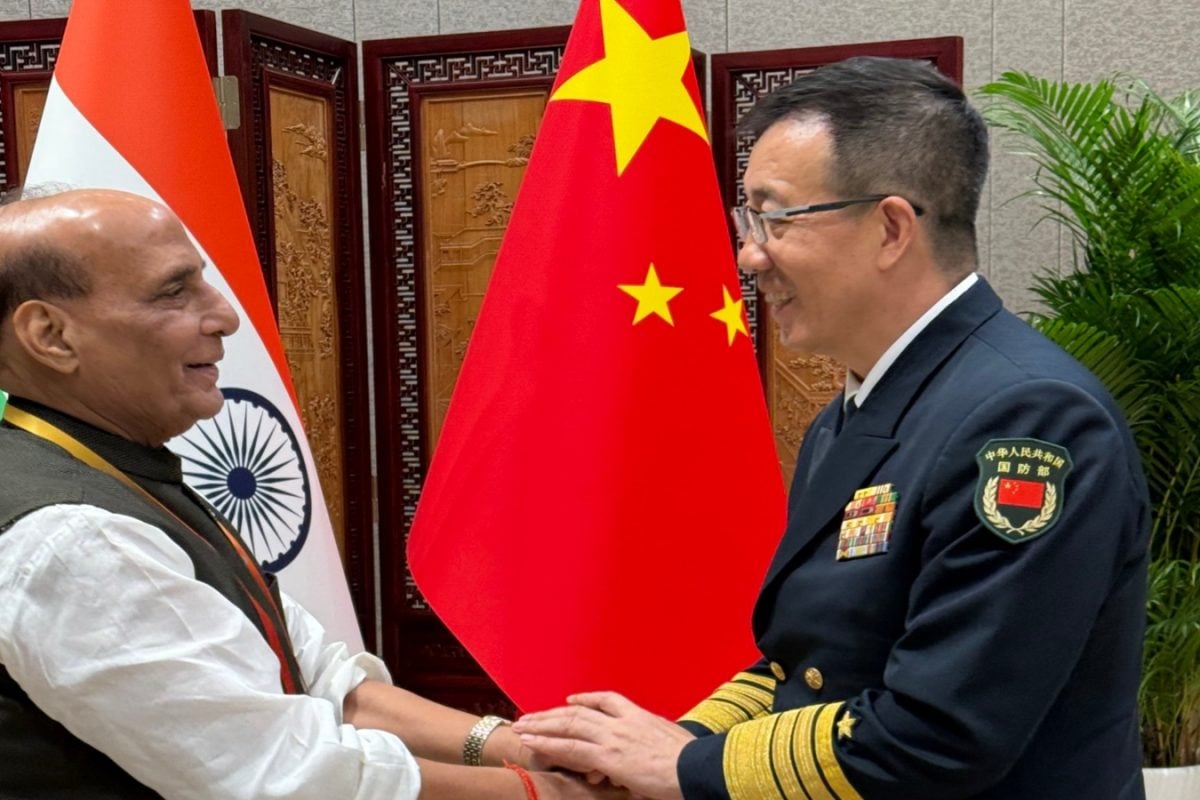

India has firmly conveyed to China, on the sidelines of the Shanghai Cooperation Organisation (SCO) meeting, that no country should support perpetrators of terrorism. This strong message comes amid increasing concerns over cross-border terrorism and the need for decisive action against UN-proscribed terrorist groups.
The Indian stance was articulated at the SCO Defence Ministers' Meeting in Qingdao, China, where Defence Minister Rajnath Singh called upon member countries to unite in eliminating terrorism for collective safety and security. Singh emphasized that "Peace and prosperity cannot co-exist with terrorism and proliferation of Weapons of Mass Destruction in the hands of non-state actors and terror groups." He stressed that those who sponsor, nurture, and utilize terrorism for their narrow ends must face consequences and that there should be no tolerance for double standards in addressing the issue.
India's firm message also implicitly targeted Pakistan, a member of the SCO, which India has long accused of supporting cross-border terrorism. New Delhi has consistently maintained that Islamabad supports terrorism in Kashmir, blaming Pakistan-based insurgent groups for orchestrating attacks. The recent terror attack on April 22 in Pahalgam, Jammu & Kashmir, in which 26 Indian and Nepalese nationals were killed, further fueled India's concerns. In response to the Pahalgam attack, India launched Operation Sindoor to dismantle terror infrastructure and deter terrorists. Rajnath Singh, during the SCO meeting, asserted that India exercised its right to defend against terrorism and pre-empt further cross-border attacks through this operation. He conveyed that "epicentres of terrorism are no longer safe, and we will not hesitate to target them".
However, China's approach to terrorism has often been a point of contention with India. Beijing has been accused of shielding perpetrators of acts of terror committed on Indian soil, including blocking efforts to place Jaish-e-Mohammad's Rauf Asghar, Lashkar-e-Taiba's Sajid Mir, and Abdur Rahman Makki on a UN sanctions list in the past. Despite condemning the Pahalgam attack, China has also reassured Pakistan, terming it an "all-weather" strategic cooperative partner.
Reflecting India's firm stance, Defence Minister Rajnath Singh declined to sign a joint declaration at the SCO summit because the final draft omitted mention of the Pahalgam terror attack and diluted India's stand against terrorism. The Ministry of External Affairs (MEA) stated that consensus was blocked by "one particular country" as India insisted on including concerns about terrorism, particularly cross-border terrorism, and holding perpetrators accountable. Sources indicate that China and Pakistan did not want to mention the Pahalgam terrorist attack in the joint statement and instead wanted to include the case of the Jaffar train hijack in Baluchistan.
India's message to China on the SCO sidelines underscores its commitment to combating terrorism and its expectation that all countries, including China, should actively work towards holding perpetrators accountable and dismantling terror infrastructure. India's focus remains on ensuring that no country provides support or safe havens to terrorists, and that the global community unites in its fight against this menace. This unwavering position is crucial for regional peace, security, and the overall development of India-China relations based on mutual trust and sensitivity.